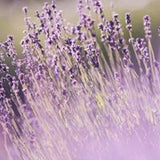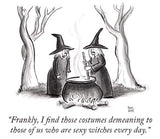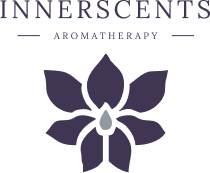
The Mysterious Power of Scent
Share
I discovered aromatherapy in my early twenties when I had gotten into such a state before my driving test I thought I might have to cancel. My customary relaxants of choice were not appropriate to driving a car, so I did a little research (despite there being NO internet!) and discovered lavender.
 I already loved lavender on account of sweet lady friends of my great aunts being generous with those pretty little bags of it for your knicker drawer. Once going about for a day with a tissue full of the stuff pressed to my nose was given credit for the passing of my (third) driving test, I was never without it, to the point that my mother made a complaint about her chauffeur "smelling like an old lady". I was not deterred. As a life-long bag of nerves and an insomniac, I had found a friend. I gradually became interested in aromatherapy itself and I loved feeling witchy, making up lotions and potions for me or mum, partly based on the therapeutic values the oils were credited with, partly about the ones we preferred...it was a lot of fun.
I already loved lavender on account of sweet lady friends of my great aunts being generous with those pretty little bags of it for your knicker drawer. Once going about for a day with a tissue full of the stuff pressed to my nose was given credit for the passing of my (third) driving test, I was never without it, to the point that my mother made a complaint about her chauffeur "smelling like an old lady". I was not deterred. As a life-long bag of nerves and an insomniac, I had found a friend. I gradually became interested in aromatherapy itself and I loved feeling witchy, making up lotions and potions for me or mum, partly based on the therapeutic values the oils were credited with, partly about the ones we preferred...it was a lot of fun. Much later, but not later enough, when mum developed a particularly vicious cancer that not even her fierce determination and optimistic spirit could conquer, she loved me massaging her hands with the precious scented oils (but not lavender!). After we lost her, my joyful bundle of a new daughter (who would also dislike lavender) brought me great comfort, but I continued to play with my oils too, and eventually did a diploma in aromatherapy, studying in the evenings when my little girl was in bed, never dreaming I could one day play with oils for a living. I researched the side that was scientifically proven, as well as the side of the sceptics, and I tended to walk a path in between, believing that the effects of the ‘not scientifically proven’ were psychological or personal. Now I know that the many oils that are not scientifically worthy, have usually not yet been scientifically tested, but I also know the psychological and personal effects are not to be sniffed at (couldn’t resist) either. Most of us have been surprised by the intensity – good or bad - of the flashback that comes when a tiny sensory stimulus (maybe the scent of your first perfume) evokes an emotional memory from your childhood, and now recent projects in healthcare, art and science are gradually revealing the wondrous functioning of these sense memories and we can begin to understand what they do to people: sense memories operate differently from voluntary, goal-directed memories that are driven by verbal cues like questions and stories. Sense memories open doors to lost memories and often go further back into childhood.
Much later, but not later enough, when mum developed a particularly vicious cancer that not even her fierce determination and optimistic spirit could conquer, she loved me massaging her hands with the precious scented oils (but not lavender!). After we lost her, my joyful bundle of a new daughter (who would also dislike lavender) brought me great comfort, but I continued to play with my oils too, and eventually did a diploma in aromatherapy, studying in the evenings when my little girl was in bed, never dreaming I could one day play with oils for a living. I researched the side that was scientifically proven, as well as the side of the sceptics, and I tended to walk a path in between, believing that the effects of the ‘not scientifically proven’ were psychological or personal. Now I know that the many oils that are not scientifically worthy, have usually not yet been scientifically tested, but I also know the psychological and personal effects are not to be sniffed at (couldn’t resist) either. Most of us have been surprised by the intensity – good or bad - of the flashback that comes when a tiny sensory stimulus (maybe the scent of your first perfume) evokes an emotional memory from your childhood, and now recent projects in healthcare, art and science are gradually revealing the wondrous functioning of these sense memories and we can begin to understand what they do to people: sense memories operate differently from voluntary, goal-directed memories that are driven by verbal cues like questions and stories. Sense memories open doors to lost memories and often go further back into childhood.

Knowing scent can wreak such emotional havoc, and knowing 99% of aromatherapy sceptics will habitually spend a considerable portion of their disposable income on smells they love, be they in the form of sensible things like laundry detergent and toothpaste, or everyday luxuries like soap and expensive perfume, I think it is fair to suggest that, as the art of aromatherapy has been practised for thousands of years, from the high priestesses of ancient Egypt to the Boots chemist on your high street, it is actually so commonplace in all of our lives that we are all more versed in its mysterious powers than we think we are.

